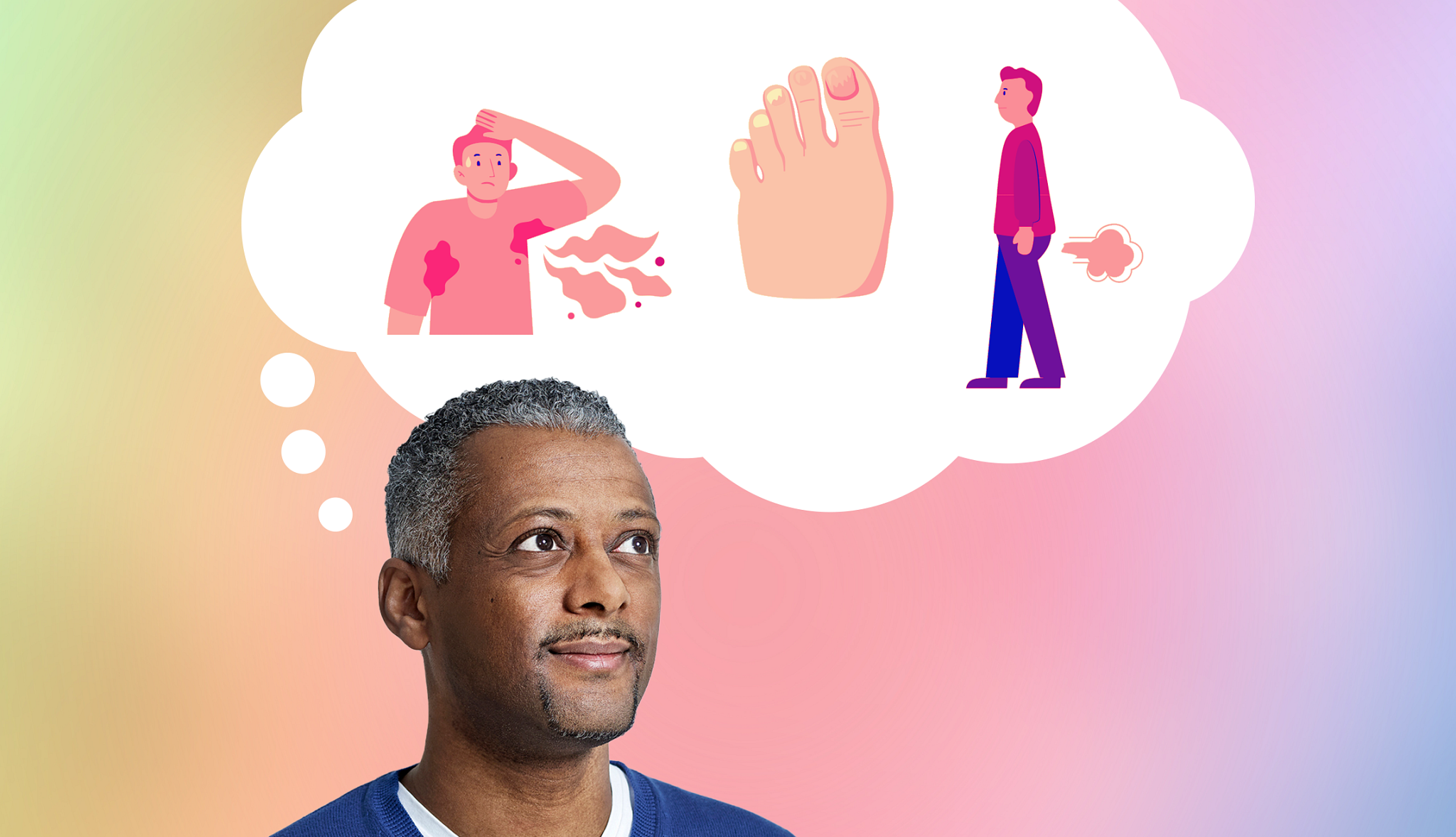Staying Fit


Let’s be honest, there are certain things about our bodies that we’d just rather not talk about. Talking about bladder or bowel leaks, problems in the bedroom or foul body odors with your doctor can feel incredibly uncomfortable.
But you should do it anyway, says Louis Papa, M.D., a primary care physician and professor of clinical medicine at the University of Rochester.
The alternative — living with an embarrassing condition instead of getting it treated — is worse. It’s also important to talk to your doctor because embarrassing symptoms can sometimes indicate a more serious health issue.


AARP Membership— $12 for your first year when you sign up for Automatic Renewal
Get instant access to members-only products and hundreds of discounts, a free second membership, and a subscription to AARP the Magazine.
Whatever your concern, your doctor has probably seen it before and knows how to help, Papa says.
“It’s one of those things where a lot of times people wipe their brow and say phew,” after they finally share their concerns with their physician, he says.
Here are some of the symptoms that may seem embarrassing and what you should know about each:
1. Bowel leakage
Have you ever accidentally ended up with a little poop in your underwear when you thought you were passing gas? Talk about a cringe-worthy moment. But bowel leakage, or fecal incontinence, happens to almost everyone at some point or another.
No matter how mortifying it seems, you should talk to a health care provider if it’s happening frequently, because sometimes there is a neurological or anatomical cause such as a tumor.
You’re at higher risk of fecal incontinence as you get older because the muscles around your anus and pelvic floor don’t function as well, Papa says.
The problem is more common in women because childbirth can cause damage to the nerves and muscles in the pelvic region. About 1 in 5 women over age 45 experiences accidental bowel leakage, research shows.
What you can do: Eat more fiber or take a fiber supplement and avoid spicy, fatty or greasy foods and dairy products. Caffeine, alcohol and foods with artificial sweeteners can also make the problem worse. Wear a pad or panty liner in case of accidents.
What your doctor can do: Prescribe medication, physical therapy or exercises to strengthen pelvic floor muscles. Other treatments include injections of bulking agents, nerve stimulation, radiofrequency therapy or a balloon-like device that is inserted in the vagina to help keep the rectum closed. Surgery may be needed to correct rectal prolapse or sphincter damage.
2. Excessive sweating
If your palms are always sweaty or you get huge pit stains no matter what the weather, you may have a condition called hyperhidrosis, which is excessive perspiration.
Hyperhidrosis is usually not serious, but it should be checked out by a health care provider because it can sometimes be a sign of an underlying issue such as diabetes, a thyroid problem or liver or kidney disease, says John Wolf, M.D., professor of dermatology at the Baylor College of Medicine. Excessive sweating can also be a side effect of medication.
What you can try: Apply a clinical-grade antiperspirant at night, cut back on caffeine and spicy foods and wear breathable fabrics like cotton. Try meditation, yoga or therapy to reduce stress, since anxiety can overstimulate sweat glands. Sweat pads can protect clothing from pit stains.
What a doctor may do: Prescribe medication or a prescription antiperspirant. Other treatments include Botox injections or a procedure called iontophoresis that passes a weak electrical current through the skin. In severe cases, surgery can remove sweat glands.
3. Body odor
Excessive sweating and body odor are closely linked, but you can have one without the other, Wolf says. Typically, the stink is caused when your sweat comes into contact with bacteria on your skin.
With body odor, you “often don’t know you have it until somebody tells you,” Wolf says. “If you think you have a problem, you may have to ask your spouse and friends.”
Certain medications and medical conditions such as diabetes, liver disease and hormone fluctuations can cause or contribute to body odor.
What you can try: Shower at least once a day, using a soap labeled “antibacterial” to remove bacteria, particularly under the arms and in the groin area. Remove hair that can trap bacteria. Use clinical-grade antiperspirant and take other steps to control excessive sweating.
What a doctor may do: Check for underlying conditions that could be causing the problem. Treat excessive sweating with Botox injections, medication or other therapies.




































































More on Health
7 Common Foot Problems and How to Solve Them
The best (and worst) treatments for bunions and other ailments that keep you off your feet
Why Age and Alcohol Don’t Mix
Research shows we process liquor differently over time. What does that mean for your health?
What Your Poop Can Tell You About Your Health
The #1 reason to pay attention to your #2
Recommended for You